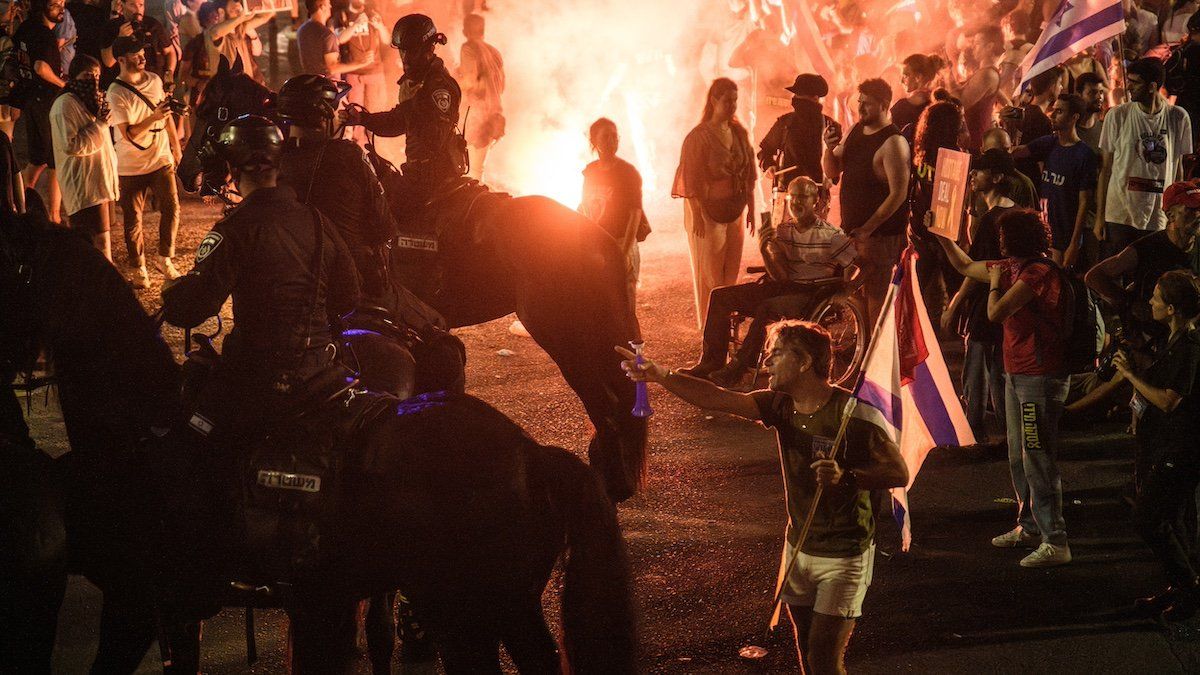Israeli Prime Minister Benjamin Netanyahu dissolved the country’s war cabinet on Monday, one week after archrival Benny Gantz resigned, citing a lack of strategy in the war in Gaza.
Meanwhile, the Israeli military implemented a“tactical pause of military activity” to increase the delivery of humanitarian aid to Palestinian civilians but made it clear that this is not a cease-fire.The daily 11-hour pause began early Saturday along a route leading north from the Kerem Shalom crossing, and aid deliveries are being coordinated with the UN and international aid agencies.
Netanyahu and Defense Minister Yoav Gallant were reportedly unaware of the pause before its announcement, with Netanyahu subsequentlytelling his military secretary that it was “unacceptable.” That said, some analysts believe Netanyahu did approve the plan.
The pause, which came as Israel buried 11 soldiers killed in the war, has exacerbated the rift within the Israeli government. “The person who decided on a ‘tactical pause’ … while the best of our soldiers are being killed in battle is a fool and an imbecile who must not remain in office,” said Internal Security Minister Itamar Ben-Gvir. Finance Minister Bezalel Smotrich claimed the pause risked putting “the achievements of the war down the drain.” Both ministers previously threatened to bring down Bibi’s coalition government if he ended the war, and had lobbied to replace Gantz on the war cabinet.
Tens of thousands of Israelis demonstrated in Tel Aviv in favor of a cease-fire on Saturday night, the start of “a week of action” against Netanyahu’s government. We’ll be watching to see how Bibi navigates the tensions with the military, and what dissolving the war cabinet — which was meant to help unify the country’s response to the Oct. 7 attacks — will have.
